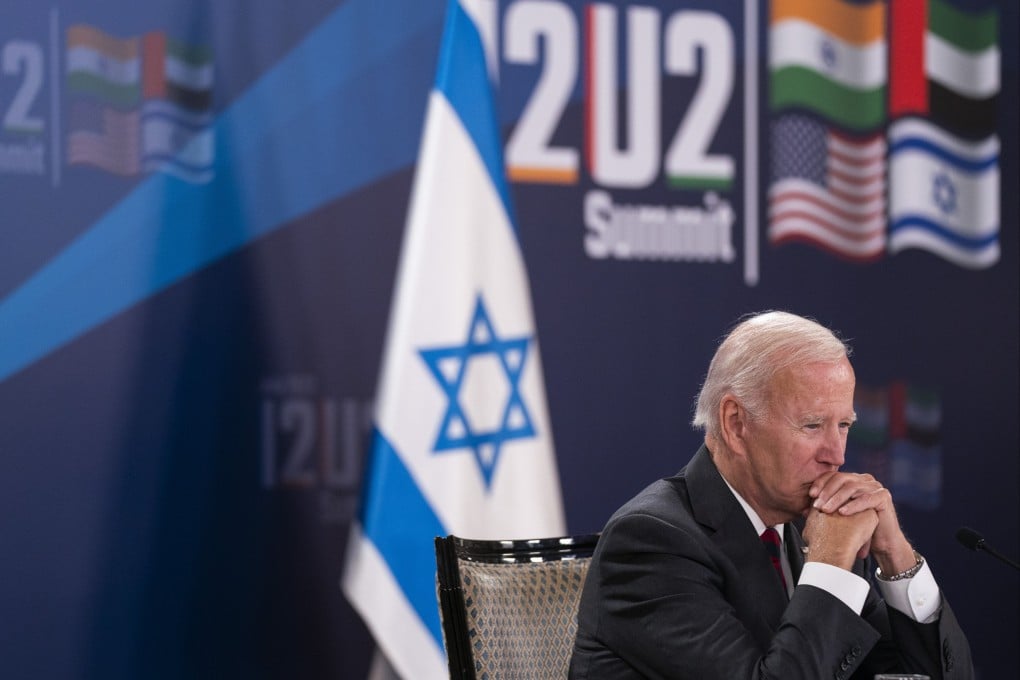Opinion | I2U2: why US efforts to fan the flames of anti-China sentiment in West Asia, Middle East are failing
- The lack of take-up for the latest US attempts to contain China lays bare its obsolete policy as the world moves towards greater collaboration
- The dilemma for Washington is that the US is perceived as a security provider in the region, albeit an unreliable one, while China is increasingly seen as a reliable trading partner

The idea for the I2U2 partnership, which derives its name from members India, Israel, the United Arab Emirates and the United States, is said to have been born last October at the Washington residence of the UAE ambassador during a casual diplomatic get-together.
Nobody anticipated at the time that a simple dinner-table conversation would end up producing a new diplomatic tool for Washington’s efforts to counter China’s influence in the Middle East and West Asia.
The first meeting was not held all in-person. Indian Prime Minister Narendra Modi and UAE President Sheikh Mohamed bin Zayed Al Nahyan joined via video conference for the session, which was conducted in Jerusalem where Biden and Israeli Prime Minister Yair Lapid were.
A very different kind of experiment is being conducted by the US to ostensibly encourage joint investment in six mutually identified areas – water, energy, transport, space, health and food security.
